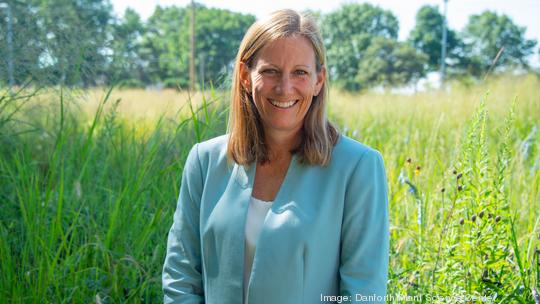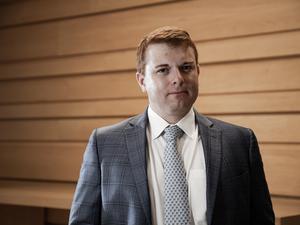
The Donald Danforth Plant Science Center said Tuesday it has snagged a federal grant to launch a new research institute focused on the restoration of natural and agricultural lands.
A $12.5 million grant awarded by the National Science Foundation will establish the New Roots for Restoration Biology Integration Institute (NRR-BII), a five-year project that will include 26 scientists from nine collaborating institutions. Allison Miller, member at the Danforth Center and professor of biology at Saint Louis University, will lead NRR-BII as its director.
“The New Roots for Restoration Biology Integration Institute offers an incredible opportunity to revolutionize the way in which we approach restoration of human-impacted landscapes by focusing on both natural and agricultural ecosystems in tandem, and by applying cutting-edge technologies used primarily in annual grain crops to wild plant species and perennial crop candidate species,” said Miller.
In addition to its focus on restoration, a major component of the new institute is to provide educational and internship opportunities in the STEM sector to students who are from underrepresented communities.
The Danforth Center is one of several St. Louis institutions involved in the project. Others include the Missouri Botanical Garden, Saint Louis University and the Saint Louis Science Center. Additional groups involved in NRR-BII include the Chicago Botanic Garden, University of Kansas, University of Vermont, University of Missouri and The Land Institute in Salina, Kansas. The Missouri Botanical Garden’s Shaw Nature Reserve will be one of seven field sites in the project.
Miller said the NRR-BII will employ technology to study how plant traits, soil and the broader environment impact crops, and how plants impact and can advance restoration. That will include using the Danforth Center's phenotyping and computational technology and capabilities to quantify plant traits.
Miller said most of the technologies have been used primarily in major annual crops like corn and wheat but haven't "really yet been broadly applied to longer-lived plant species and hadn’t really been applied to many nonmainstream crops," a major focus of the institute. The project's collaborators from the Danforth Center and SLU are also working to create a mobile app to be used for the phenotyping of plants above ground, Miller said.
The NRR-BII plans to tap into programming by its partners, including the Saint Louis Science Center and Chicago Botanic Garden, to give “outreach talks” at local high schools to discuss its research, STEM careers and college readiness. The institute said it plans to offer five to 10 high school students per year participation in six-week paid internships and to provide them with mentoring.
“We are equally as excited about the opportunities for recruitment, training, retention, and placement of the next generation of scientists, with a focus on persons excluded because of ethnicity or race (PEER) who will build their careers working across disciplines to restore wild landscapes and restructure agricultural systems for long-term sustainability,” Miller said.
The new institute will launch Sept. 1.











